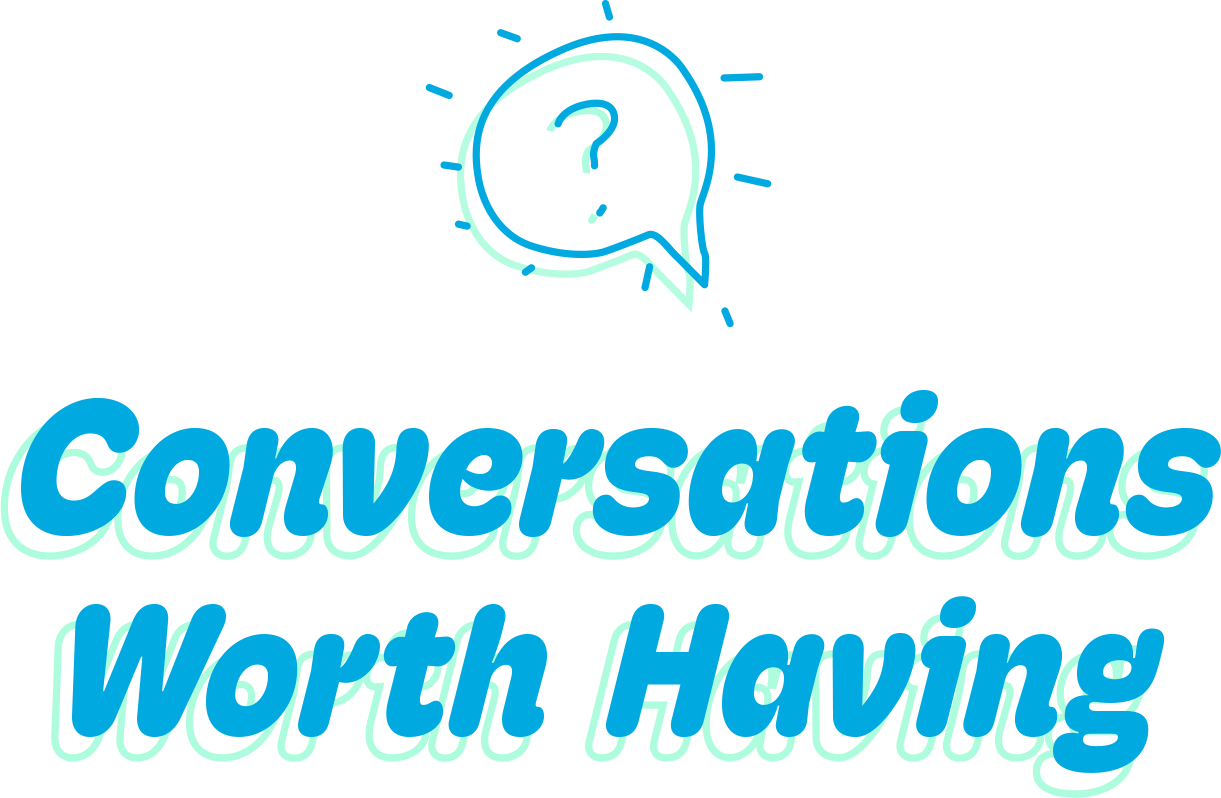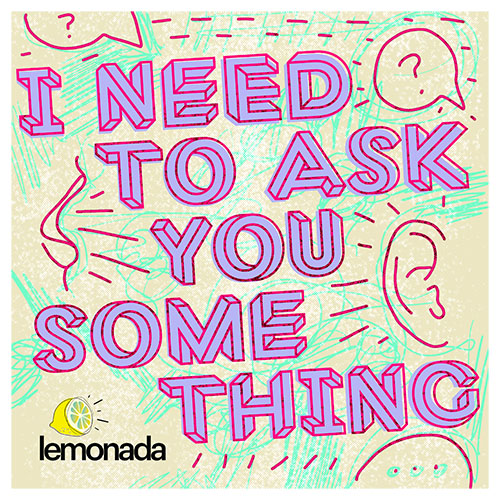It’s not always easy to open up and share the hard things, but when you do it in a supportive environment, you almost always feel better afterward and find it easier next time. It’s also comforting and helpful to know that you are not alone, other people have been through similar challenges and found a path through them. These are the conversations we want to have with you.
The Jed Foundation (JED) has partnered with Lemonada Media to create, “I Need To Ask You Something,” a new 10-part podcast series where teens and young adults sit down with important figures in their lives to have meaningful—sometimes hard and vulnerable—but, ultimately, helpful, life-changing chats. We invite you to sit in on these honest and open conversations. We think you will find them compelling, and we hope they will inspire you to create connection, seek solutions, and find closure where you need to in your life.
Hosted by trauma therapist and JED Consulting Expert Monica Band, “I Need To Ask You Something” will spark curiosity and empathy—but it may also bring some uncomfortable or difficult feelings to the surface. Below, you’ll find resources to support your listening journey and overall mental well-being.

Helpful Resources
Forging Relationships
Time spent developing relationships is also time spent taking care of yourself. Human beings are wired for connection, and tapping into your relationships and spending quality time with those you love and trust is a powerful way to protect emotional health for you and the people in your life.
Dealing with Traumatic Events
It’s the weeks, months, and sometimes, years after a traumatic event when you begin to process your emotions. There is no “right” timeline to heal. By practicing self-care, giving yourself grace, and knowing when to seek out professional support, you can find a way forward.
Understanding and Coping
with Anxiety
Anxiety often pushes you to worry about the future and dwell on the past. With coping tools that feel right and a support system behind you, you can find a way to live in the present and make anxious thoughts more manageable.
Getting Help
We all struggle—that is part of being human—and we all deserve whatever support we need to move through the hard times. Sometimes that means professional mental health care. Whatever you are going through, you are not alone, there is good help available, and you can use it to start feeling better today.
Helpful Resources

Forging Connection
Time spent developing relationships is also time spent taking care of yourself. Human beings are wired for connection, and tapping into your relationships and spending quality time with those you love and trust is a powerful way to protect emotional health for you and the people in your life.

Dealing with Traumatic Events
It’s the weeks, months, and sometimes, years after a traumatic event when you begin to process your emotions. There is no “right” timeline to heal. By practicing self-care, giving yourself grace, and knowing when to seek out professional support, you can find a way forward.

Understanding and Coping with Anxiety
Anxiety often pushes you to worry about the future and dwell on the past. With coping tools that feel right and a support system behind you, you can find a way to live in the present and make anxious thoughts more manageable.

Getting Help
We all struggle—that is part of being human—and we all deserve whatever support we need to move through the hard times. Sometimes that means professional mental health care. Whatever you are going through, you are not alone, there is good help available, and you can use it to start feeling better today.
Listen to the latest episode
Many of us will find ourselves in moments when it doesn’t feel like we have anyone to talk to or when the simple tips above aren’t helping us feel better again. That’s a great time to reach out and talk to someone.
Text or call 988 for a free and confidential conversation … anytime.
For a referral for mental health treatment, call 1-800-662-HELP (4357) to reach SAMHSA’s National Helpline.
If this is a medical emergency or if there is immediate danger of harm, call 911 and explain that you need support for a mental health crisis.


